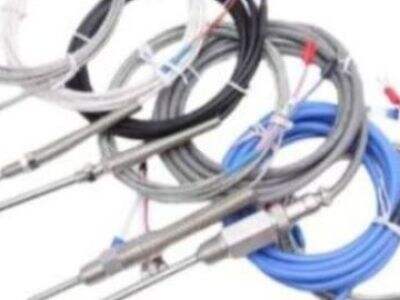Thermocouples are vital instruments that let us measure temperature in various ways. Thermocouples, there are the types J, K, T, E, and N. Each type is unique, and each is used to measure a different situation.
Differences Between Type J, K, T, E, and N Thermocouples
It’s critical to understand the differences between these thermocouples so that you can choose the right tool for the task.
J type thermocouples are iron and constantan. They work good for average purposes.
K Type Thermocouple The K-types are constructed using chromel and alumel. They also work in a wide range of temperatures.
T-type thermocouples are manufactured from copper and constantan. They’re ideal for low temps.
Chromel-constantan E-type themocouples from being used in factories.
For N-type thermocouples, nicrosil and nisil are used. They are also stable and accurate.
J,K,T,E,N thermocouples: performance and applications
J-type thermocouples are capable of measuring high temperatures of up to 1400 °C and are very accurate.
K type thermocouples are versatile and can measure a wide range of temperatures from -200 degrees up to 1260 degrees C.
T THERMOCOUPLE T-type thermo couple are good from -200 to 350°C, and ideal for low temperature work.
They can reach 900°C and they are popular in various industries.
N-Type thermocouples are capable of temperatures up to 1200 °C and are stable and precise.
Special Characteristics of J, K, T, E, and N Thermocouples
J-type thermocouples are robust and not terribly expensive, but they have a narrower range of temperature measurements.
K-type thermocouples operate in a wide temperature range and are not as accurate as some others.
T-type thermal couples are extremely stable, but they measure low temperatures only.
E-type thermocouples are durable and don’t rust, so they are good for dirty or harsh environments.
Type N thermocouples are extremely stable and accurate but usually cost more than a type E.
Selecting the Best Thermocouple
When it comes to selecting the best thermocouple, it all depends on what you want to achieve with your job.
The J-type thermocouples are good for general purpose, low degree applications.
K type thermocouple can be employed in a wide range of temperature.
It is recommended not to use T-type thermocouples at high temperatures.
E-type thermocouples are ideal in heavy industrial applications.
The N Type has stable performance at low temperatures, a positive Reference with negative lead.



